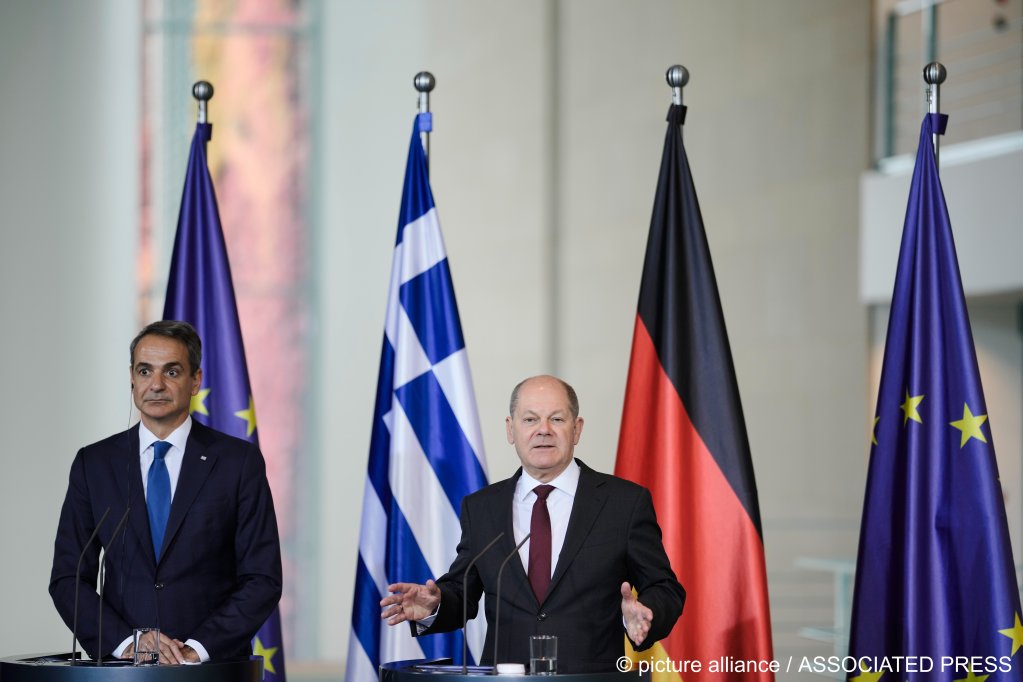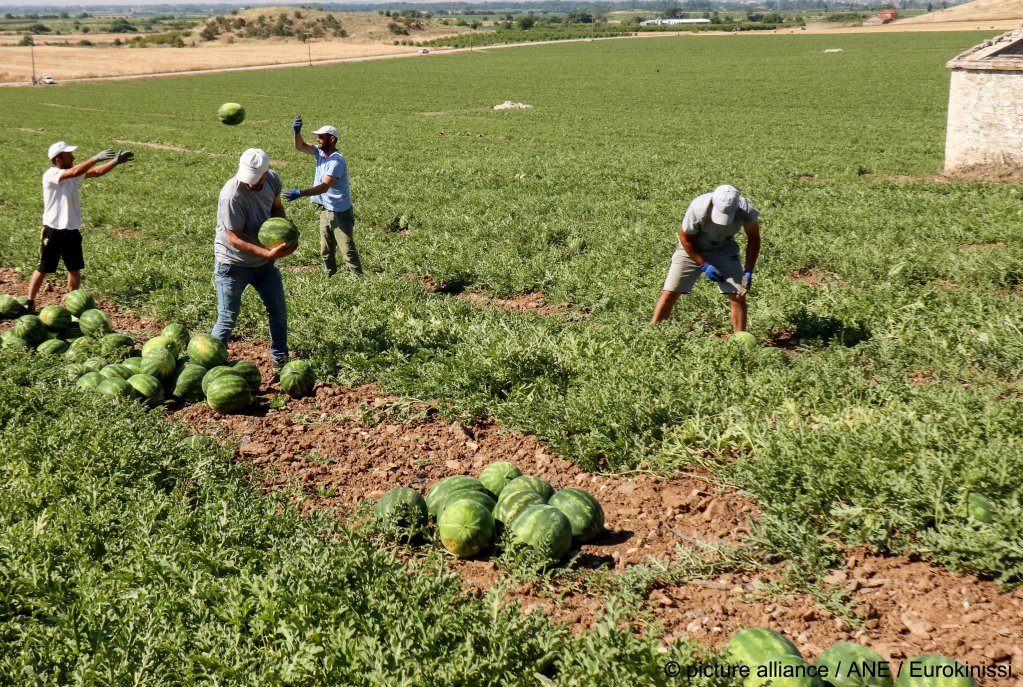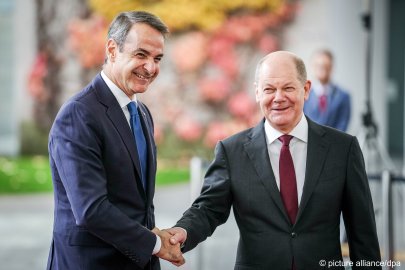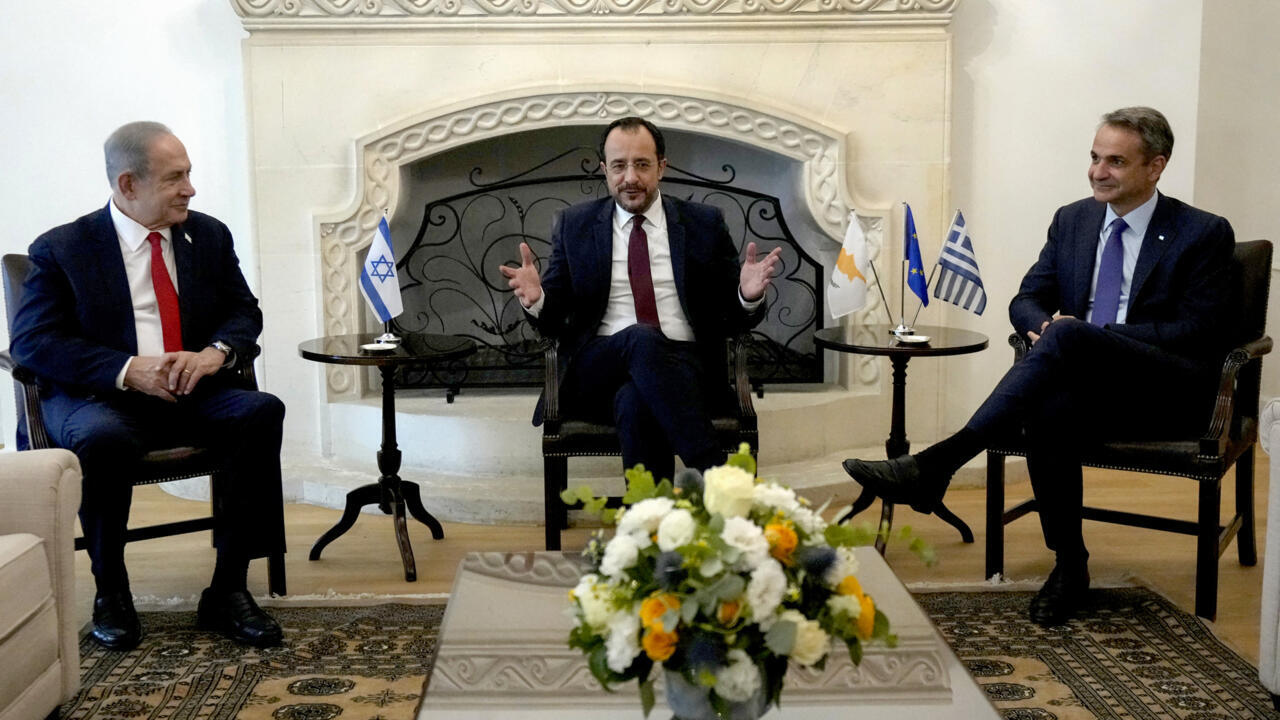Germany and Greece set on slowing migration numbers
Source: InfoMigrants: reliable and verified news for migrants – InfoMigrants
German Chancellor Olaf Scholz and Greek Prime Minister Kyriakos Mitsotakis met in Berlin on Tuesday and talked extensively about migration. Both are in favor of extending the EU-Turkey deal, to try and slow the number of migrants arriving in the EU.
On Tuesday (November 14), Germany’s Chancellor Olaf Scholz met his Greek counterpart Kyriakos Mitsotakis in Berlin, where they addressed several bilateral challenges related to migration. In addition, the leaders talked about economic issues, energy and the Middle East.
“Athens insists that additional resources are needed for the migration issue. It is very likely that frontline states like Greece will face new pressures on their borders with the new crisis in the Middle East,” stated Mitsotakis, according to the Greek newspaper Ekathimerini.
Also read: Greek migrant camps ‘malfunctioning’ and ‘overcrowded’ warn NGOs
‘If we grant asylum, obviously they need to stay in Greece’
The issue of secondary migration was one of several points on the agenda.
Although Germany has taken in millions of migrants, asylum seekers and refugees over the years who have originally entered the EU bloc through Greece, the current government is keen to start limiting the numbers who hope to make Germany their home.
The German government wants to make sure that those seeking asylum in Greece don’t eventually travel on towards Germany.
The mood in Germany is beginning to turn against the “refugees welcome” feeling that prevailed in 2015 when thousands turned out holding signs as more than a million, mostly Syrian, refugees arrived in the bloc’s biggest country. Fast forward eight years, and the continued arrivals of migrants, asylum seekers and refugees, coupled with a recession and the aftermath of a pandemic is making the German public and its politicians more cautious.
The Greek leader agreed that the issue of asylum seekers leaving Greece was a problem for the whole of the European Union. “If we grant someone asylum, then obviously they need to stay in Greece,” Mitsotakis told reporters. Scholz said he was entirely confident the two would come up with some useful solutions.

A series of solutions and agreements
For its part, Greece is doing slightly better economically than it was back in 2015 when the echoes of the 2008 financial crisis were still causing shockwaves in southern Europe. Now, the growth seen in some sectors of the Greek economy means the country is looking for migrant workers to fill vacancies, said Mitsotakis. As part of the talks, Greece pledged to take a central role in the transmission of “green” energy to southern Germany, as well as acting as an energy bridge between the Middle East, Egypt and Europe, reported Ekathimerini.
One of the main problems facing Europe is the differing levels of social and welfare support offered in various countries within the bloc. Germany, which had long been Europe’s strongest economy, offers high levels of support, which adds to its attractiveness for many migrants and asylum seekers who prefer not to stay in poorer European countries where no help would be offered. In addition, many asylum seekers already have networks in Germany, due to the greater numbers of people granted refugee status here back in 2015.
Also read: Asylum seekers bear the brunt of Greek housing shortage
Germany’s politicians continually underline that they are looking for migrant workers to fill vacancies. However, many of these require skills that some of those arriving as asylum seekers might not yet possess.
Differing levels of welfare support
The higher levels of welfare support in Germany, reports Reuters, have also meant that German courts tend to decide against sending asylum seekers originally granted asylum in Greece back to that country because it would be cutting them off from the support they had been receiving in Germany and condemning them to a much worse standard of living in Greece.

The judgments in many of these cases over the years have ruled that the welfare support on offer in Greece is not good enough to merit them being sent back.
Both German and Greek leaders then appear to be placing some of their hopes in a renewal and deepening of the EU-Turkey migration pact which was originally signed in 2016. Athens has been calling on its EU partners to help finance a strengthening of the border fence that Greece has been building along its land border with Turkey. During the meeting, reported Reuters, Scholz said that Germany would support that request.
EU-Turkey deal needs to be further developed
Commenting on the EU-Turkey deal, Scholz said the deal had “a positive effect and must therefore be brought to life and continued, and of course, further developed.” Talks are currently ongoing between Brussels and the Turkish capital Ankara.
Mitsotakis underlined that Athens was seeking cooperation with Ankara “in dealing with the refugee problem.” The Greek leader said that in recent months they had been carrying out joint initiatives with the Turkish authorities to limit the number of boats leaving Turkish shores for Greece.
Since the beginning of 2023, according to the UN Refugee Agency UNHCR’s latest data, updated on November 12, 38,448 migrants have arrived in Greece from Turkey. Since 2020, Turkey has refused to take any rejected asylum seekers back from Greece.
Turkish President Recep Tayyip Erdogan is due to visit Scholz in Berlin on Friday (November 17) this week. He will meet with Mitsotakis in Athens on December 7, reported the Greek newspaper Ekathimerini.
With Reuters and dpa
The original article: belongs to InfoMigrants: reliable and verified news for migrants – InfoMigrants .




